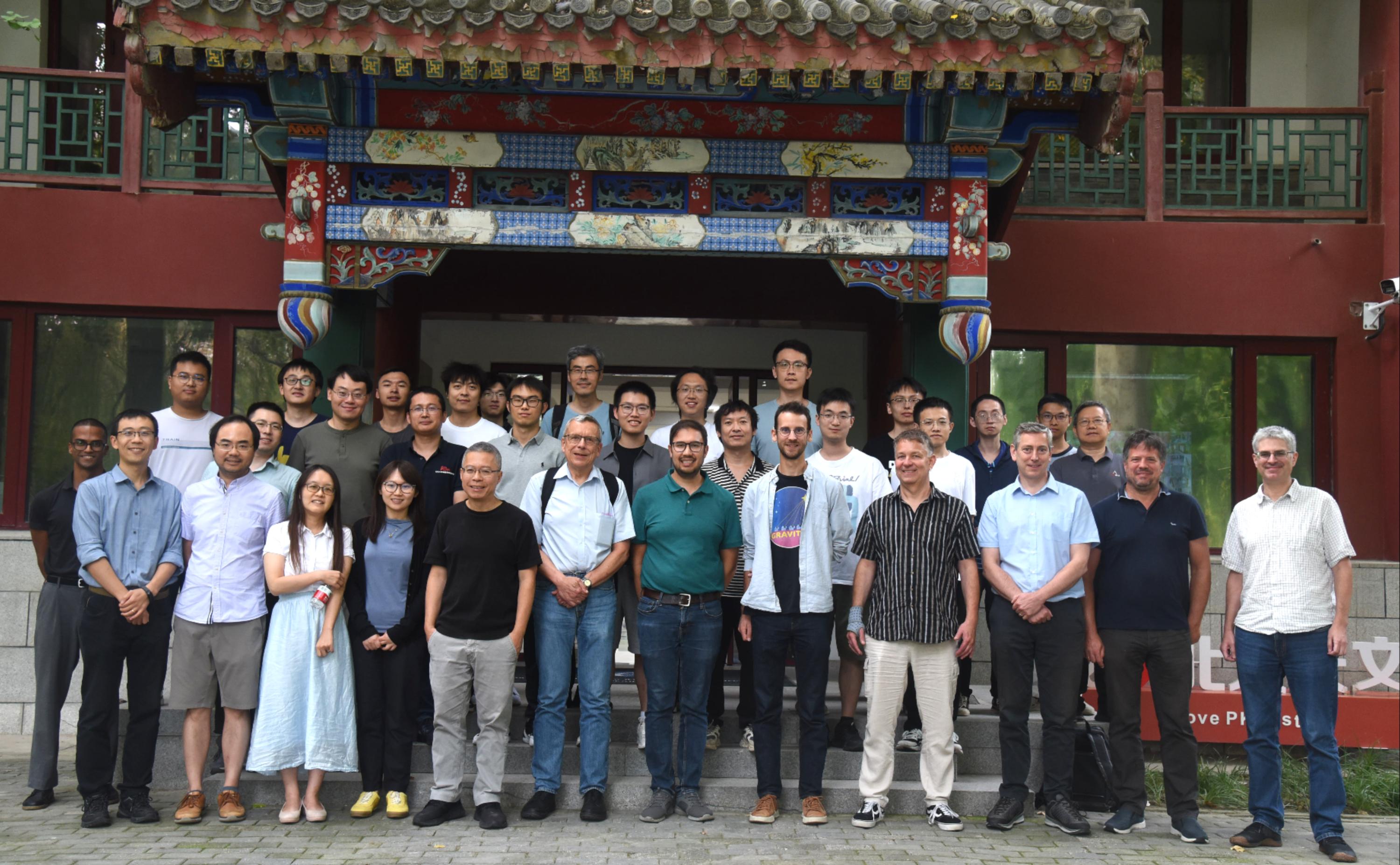
Group photo for the KIAA-MPE Bilateral Workshop
The Kavli Institute for Astronomy and Astrophysics (KIAA) hosted the KIAA–Infrared (IR) group at the Max Planck Institute for Extraterrestrial Physics (MPE) Bilateral Workshop from September 9 to 12, 2025. MPE in Garching, Germany is a leader in many areas of astronomy, driving global initiatives in science and astronomical instrumentation, including the 2020 Nobel Prize to then- MPE Director, Prof. Reinhard Genzel. This workshop strengthened the collaboration between the MPE Infrared Group and KIAA across a range of overlapping research areas, including galaxy evolution, AGN and quasars, star and planet formation, and experimental tests of general relativity in the Galactic Center.
MPE is particularly strong at linking frontier scientific questions with instrumentation development, often for telescopes at the European Southern Observatory’s Very Large Telescope (VLT. Current instrumentation initiatives from MPE include the uniquely powerful GRAVITY+ instrument on the VLT interferometer, an instrument unlike any other in the world, and MICADO, a primary instrument planned for the European Extremely Large Telescope. The 2020 Nobel Prize was awarded to Genzel in part because of the group-wide effort to develop the GRAVITY instrument for the VLT interferometer, designed specifically to measure the black hole at the center of the Milky Way and use orbits of stars around the black hole as a laboratory to test general relativity. PKU is rich in talented faculty and students but lacks direct access to leading observatories.
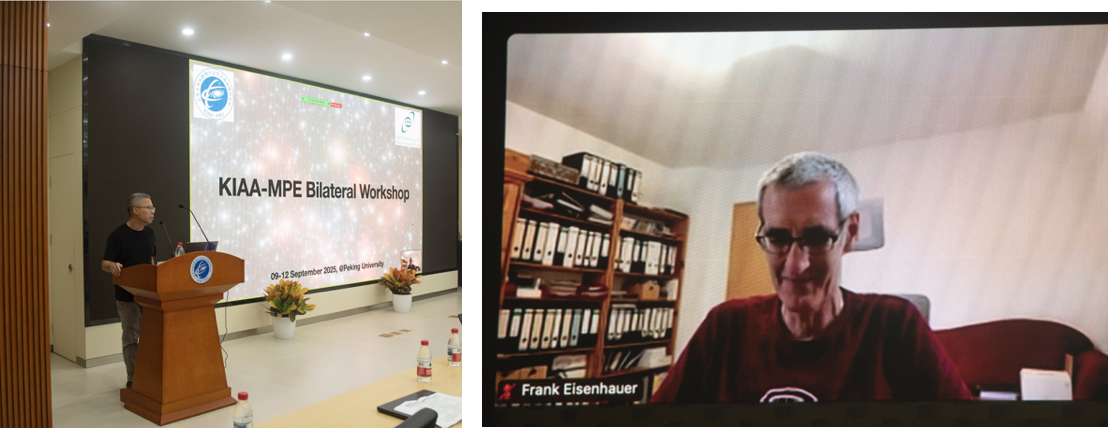
KIAA Director Luis Ho and MPE Director Frank Eisenhauer giving opening remarks for the workshop
KIAA Director Luis Ho delivered the opening welcome address. He reviewed the remarkable academic achievements made by MPE over the years and emphasized the long-standing, close collaboration between the members of KIAA and MPE, and expressed sincere expectations for further deepening cooperation in the future. Professor Frank Eisenhauer, Director of MPE, gave an opening speech online. He spoke highly of the close collaboration between the two institutions over the years in multiple cutting-edge fields of astrophysics and emphasized the significant role of this seminar in advancing joint research and promoting academic exchange. The MPE delegation also presented KIAA with a special gift: an exquisitely crafted model of the Galactic Center, symbolizing their friendship and strong commitment to collaboration.
The workshop centered on key themes such as galaxy evolution across cosmic time, black holes ranging from stellar to supermassive scales, and the processes underlying star and planetary system formation. Many KIAA faculty members and six colleagues from MPE presented their scientific progress, highlighting recent achievements from both institutes. Several splinter discussion sessions focused on proposals for GRAVITY+ and future instruments on many topics.
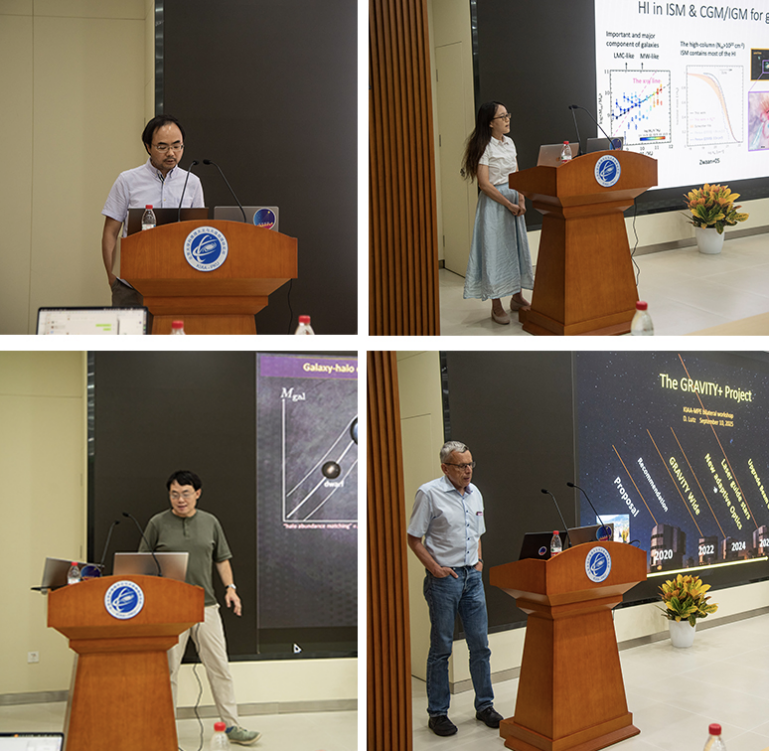
From top left to bottom right: Peng Yingjie, Wang Jing, Jiang Fangzhou and Dieter Lutz
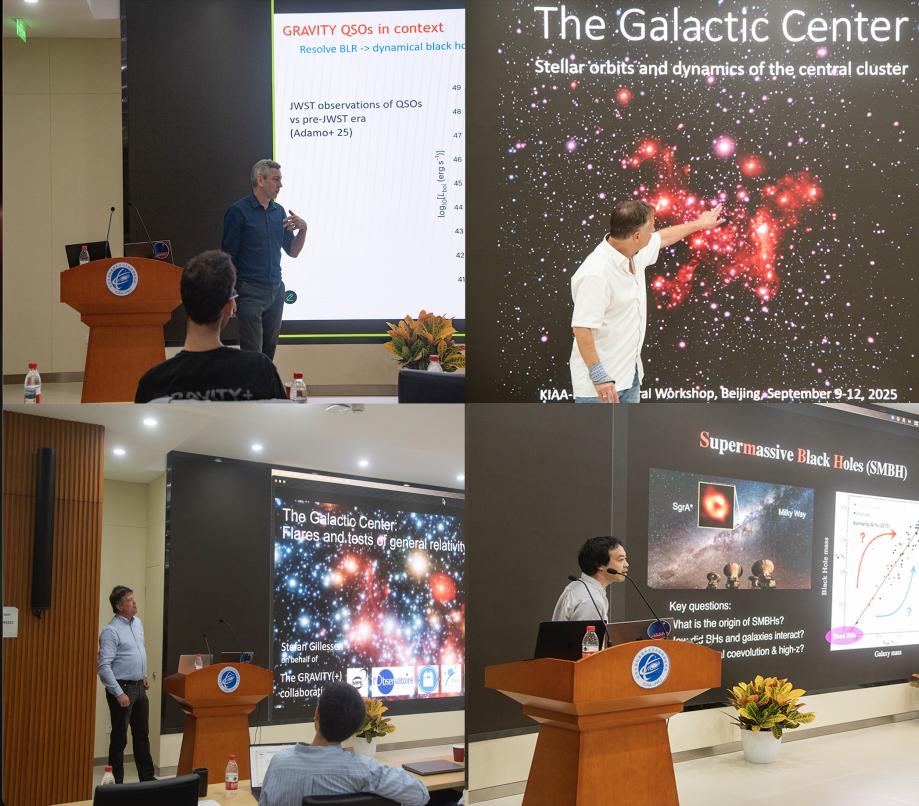
From top left to bottom right: Ric Davies, Thomas Ott, Stefan Gillessen and Kohei Inayoshi
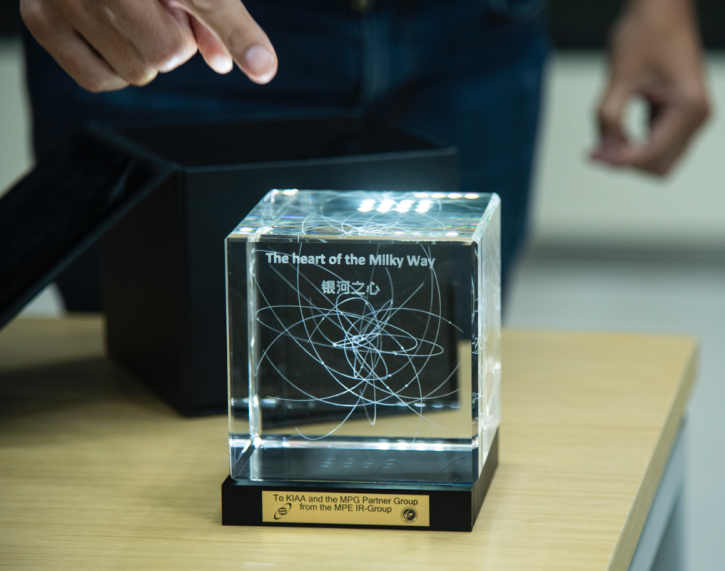
The heart of the Milky Way, a gift from MPE to KIAA
At the seminar, Professor Reinhard Genzel, Director of MPE and recipient of the 2020 Nobel Prize in Physics, delivered an outstanding one-hour lecture titled "Experimental Studies of Black Holes: Status & Prospects." He provided a comprehensive overview of the developments in observational astrophysics related to black holes, tracing the field’s historical progress and outlining future research directions.
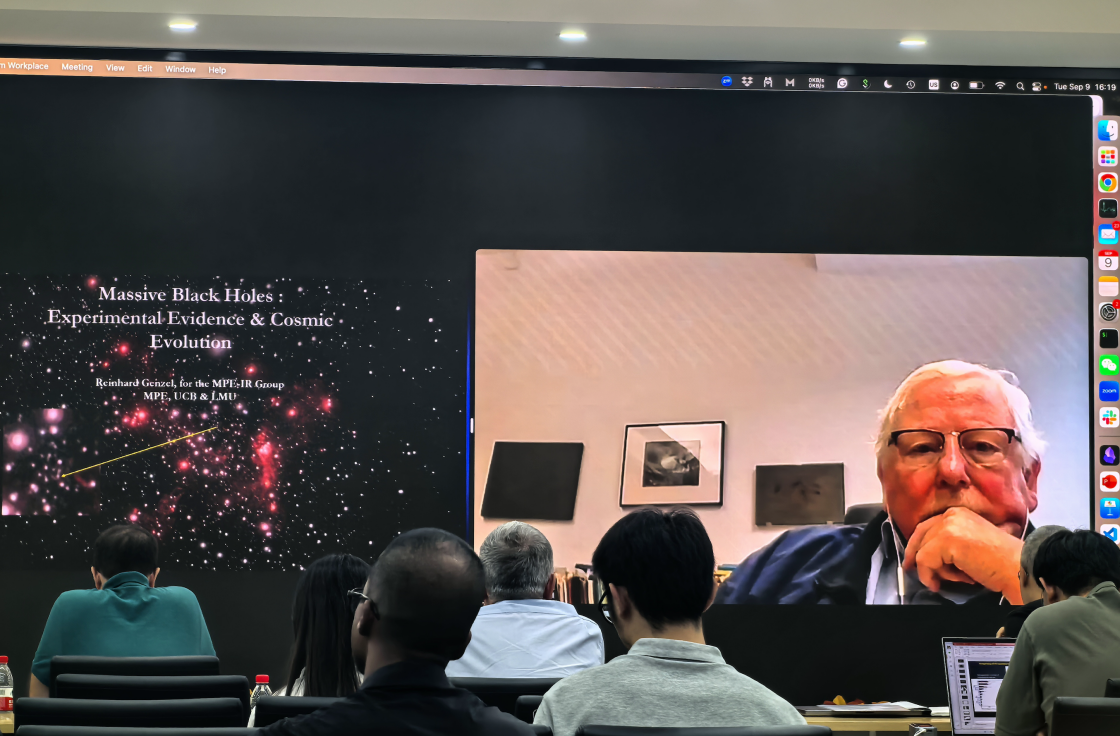
Prof. Reinhard Genzel provides the scientific and historical overview of the discoveries that led to his Nobel Prize in 2020.
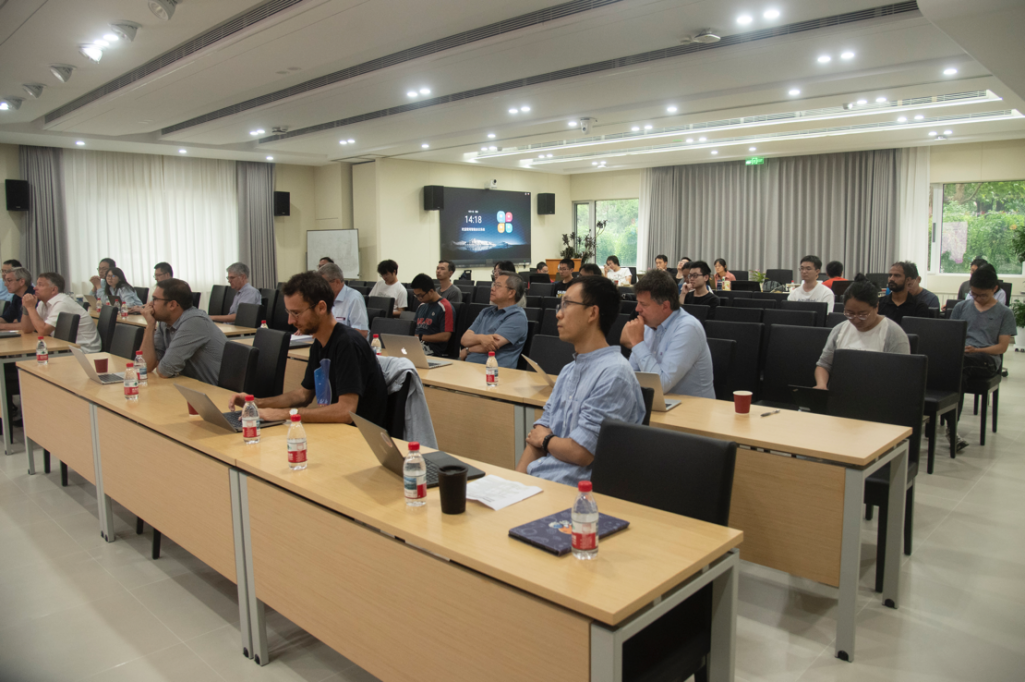
Roughly 50 people attended the discussions during the bilateral meeting.
In addition to the academic sessions, the event featured two special segments: a public lecture titled "Black Holes — Cosmic Fantasy or Reality?" delivered by senior MPE researcher Stefan Gillessen, which attracted over 200 faculty members and students. Using accessible language, he introduced the fundamental concepts of general relativity and explained how cutting-edge observational technologies are being used to test predictions about black holes. The bilateral workshop also included a career development workshop that provided young scholars with practical guidance on employment opportunities within the Max Planck Society.
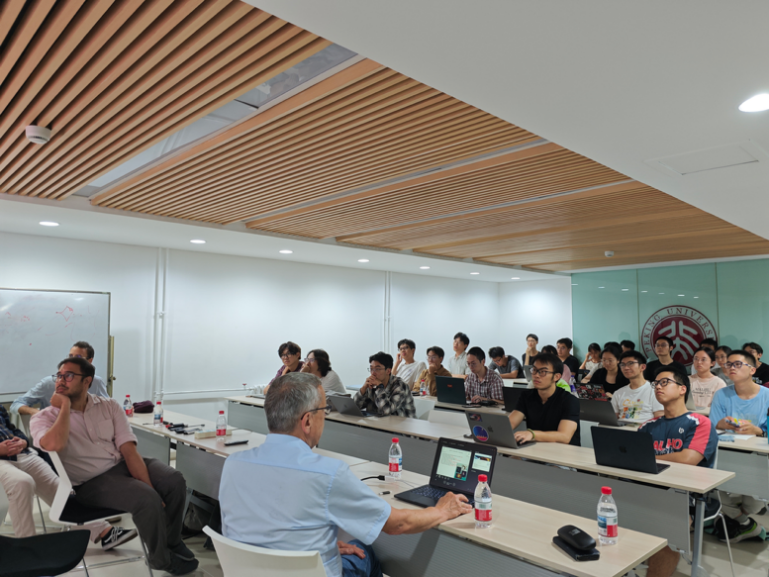
PKU students at the career development seminar, listening to advice from MPE researchers Dieter Lutz, Taro Shimizu, Guillaume Bourdarot, and others.
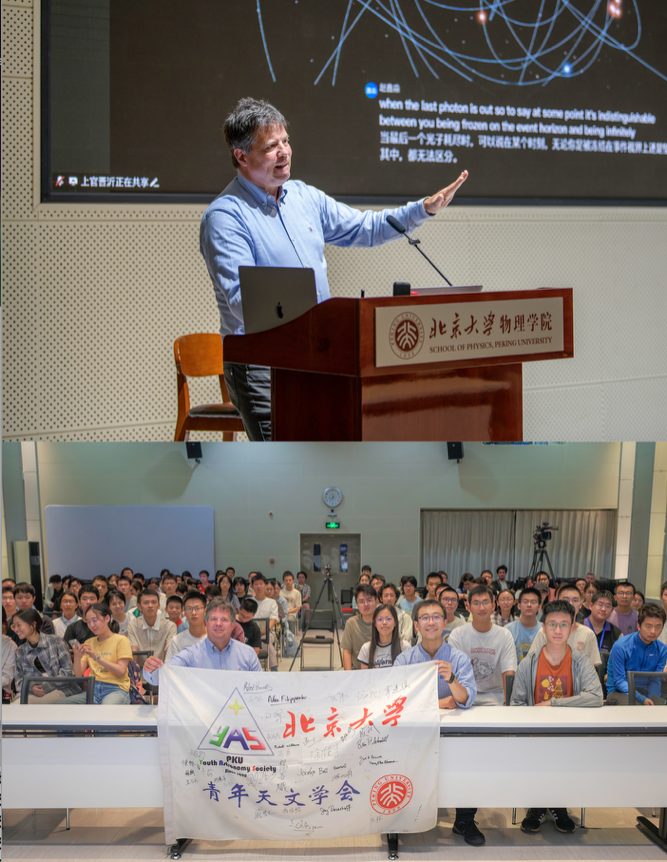
Public lecture from Stefan Gillessen, with over 200 people in attendance
This bilateral seminar has not only facilitated in-depth exchanges between the two leading research institutions in cutting-edge astrophysics but has also laid a more solid foundation for their long-term collaboration in the future.